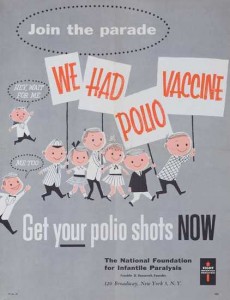I am happy. :) But I was against marriage for a long time, and I still am. I dislike marriage for two major reasons.
1. I don’t need any outside group telling me my relationship is legitimate.
I don’t need anyone’s approval to be with the person(s) I love. I don’t particularly care what anyone else thinks about my choice of mate(s), whether they approve of their race, gender, temperament, or anything else. Therefore I don’t feel any need to get a piece of paper telling me that my choice has been approved by the government. Big fucking deal, you can take that paper and shove it up your ass. It will not change the nature of my relationship, I will not love my mate any less or any more because I have it. We’ll stay together as long as we both want to be together. Which leads me to…
2. I don’t want any outside group telling me my break-up is illegitimate.
I’ve gone through a divorce before, and the amount of legal hold your partner has over you is terrifying. Basically, either person can hold their ex-partner’s life hostage for months and force tens of thousands of dollars in lawyer’s fees upon them, simply in retribution. Fortunately this didn’t happen, it was an amicable divorce. But if my ex wasn’t a civil person it easily could have, because she still wanted a relationship and I did not.
Let me clarify a few things here.
I don’t believe men should be able to take-and-dump women. I realize that some women’s life path is to marry a nice guy with a good job and spend her life making the home and raising the children. (Actually that can work for both genders, but traditionally it’s more common among women) It is arguable that a woman’s highest-potential years for achieving this are in her twenties, and thus a man who marries a woman in her twenties and then leaves her in her forties is literally robbing her of her greatest producing years. Marriage (in its current incarnation) is designed as a contract to protect the homemaker in these sorts of arrangements. If one party has given up their careers – decades of income, and decades of gathering job skills and professional contacts – with the implicit assumption that they will be economically secure in their old age due to this sacrifice, it is both Right and Just that s/he be assured that security through legal means if their partner reneges.
I’ve never had that sort of relationship. I do not want that sort of relationship. I consider it distasteful and exploitative. I like my women independent and self-fulfilled. Aside from brief periods of unemployment (on both sides) everyone I’ve ever been in a relationship with has had their own ambitions and career and made roughly the same amount I do. House work is shared. There are no children. The marriage contract does not apply to our relationship. No one is being exploited. No one needs to be legally bound to uphold their side of “the deal” which marriage represents. We don’t have or want that deal. This is what I realized during my first divorce – the social good which marriages protect does not apply to my relationship. It does no good at all, and only serves to encumber us, and give us hostage rights over each other. We should never have entered into a marriage in the first place.
Until such a time as I decide to be party to a marriage of the traditional sort (1 wage-earner, 1 home-maker) there is no good reason to enter into a marriage, and several good reasons to avoid doing so. And as someone who hopes to live for at least thousands of years, I have to accept that it is likely that both I and my partner will value-drift in ways that do not match, and in time we will no longer be ideal for each other, and at that time we should separate. I don’t want to go through the whole terrifying divorce ordeal again once that happens.
There are a few things which have persuaded me to actually get married, despite these reservations.
*The most obvious, but least important, is the various legal benefits that society grants to couples that have that piece of paper. It’s ridiculous, but there are all sorts of rights that it conveys – some of them non-trivial.
*Far more important is that my mate values being married as a terminal goal by itself. As she’s my SO, my utility function contains a term for the fulfillment of her utility function. I was worried, however, that she wasn’t including the terror I felt at being legally bound in her utility calculations. This was allayed by:
*She has agreed to divorce me after five years. After that we’ll remarry after five years, and repeat. Obviously with no change in lifestyle (unless we desire), merely in legal standing. This, more than anything, convinced me that she understands my worries, and she’s willing to share the burden of living in sub-optimal marital states for 5 year periods with me (though of course the periods we consider sub-optimal are transposed). And that… that is what true love is. :) I feel I can trust someone who’s willing to be so fair and honest with me, and I’m happy to make concessions to her, as she’s willing to make them for me.
Plus we’re crazy happy together. <3


